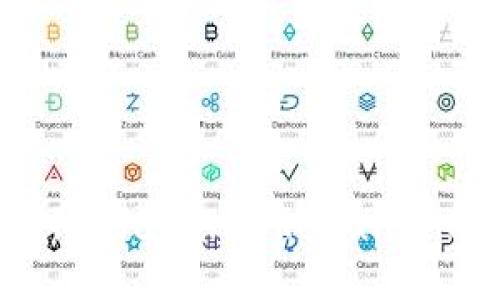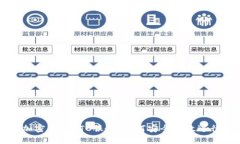Cryptocurrency has dramatically changed the financial landscape around the globe, and Japan is one of the leading countries embracing this trend. As of 2023, Japan stands out as a pioneer in cryptocurrency adoption and regulation. The Japanese government has established a comprehensive framework that aims to promote innovation while ensuring investor protection, leading to a burgeoning ecosystem for digital assets.
This document aims to provide an overview of the cryptocurrency landscape in Japan, including its regulatory framework, popular cryptocurrencies, key exchanges, and future trends. We will also address some frequently asked questions related to cryptocurrencies in Japan.
## Regulatory Framework in JapanOverview of Japan's Regulatory Environment
Japan's approach to cryptocurrency regulation is considered one of the most advanced globally. The Financial Services Agency (FSA) is the primary governing body overseeing cryptocurrency exchanges and their operations. In April 2017, Japan officially recognized Bitcoin as a legal form of payment, thus providing a regulatory framework for cryptocurrency operations.
The FSA's regulations require cryptocurrency exchanges to register and meet specific compliance standards, including anti-money laundering (AML) and know-your-customer (KYC) procedures. These measures are designed to ensure that investors are protected from fraud and other financial crimes.
Key Regulations Affecting Cryptocurrency

Several critical regulations shape Japan's cryptocurrency landscape:
- Registration Requirement: All cryptocurrency exchanges must register with the FSA to operate legally within the country. This registration process involves a detailed review of the exchange's business model, risk management, and internal controls. - AML and KYC Guidelines: Exchanges are required to implement robust anti-money laundering and know-your-customer measures. This ensures that customers are verified before engaging in trading activities, minimizing the risk of illicit financial transactions. - Consumer Protection Measures: The FSA imposes strict security standards on cryptocurrency exchanges to safeguard users' assets. Cybersecurity protocols must be in place, and exchanges are required to take significant measures to protect against hacking and other security breaches.This regulatory environment has positively impacted the cryptocurrency community in Japan, fostering a culture of trust and transparency in an otherwise volatile market.
## Popular Cryptocurrencies in JapanBitcoin: The Pioneer Cryptocurrency
Bitcoin (BTC) is the most recognized cryptocurrency globally and also enjoys immense popularity in Japan. After its recognition as legal tender, Bitcoin transactions gained substantial traction among Japanese merchants, allowing consumers to use it for everyday purchases. Major retailers, including Bic Camera and various food chains, have started accepting Bitcoin payments, enhancing its usability.
Ethereum: Driving Innovations

Ethereum (ETH) holds the second-highest market capitalization after Bitcoin and is particularly popular among developers due to its smart contract functionality. In Japan, many startups are leveraging Ethereum's blockchain for decentralized applications, making it a critical player in the country's tech landscape.
Ripple: Aiming for Financial Infrastructure
Ripple (XRP) has gained attention in Japan, especially due to its focus on enhancing the traditional banking systems. Major Japanese banks have started exploring Ripple’s technology to facilitate faster, more cost-effective international remittances. This utility has provided Ripple a solid footing in the Japanese financial ecosystem.
Local Altcoins in Japan
Japan is also home to several locally developed altcoins, catering to various niches in the cryptocurrency market. Projects like NEM (XEM) and Monoeci (XMR) have gained traction due to their unique features and local community support.
## Cryptocurrency Exchanges in JapanRegulated Exchanges in Japan
Japan hosts several regulated cryptocurrency exchanges that have gained the trust of investors:
- bitFlyer: Founded in 2014, bitFlyer is one of the largest exchanges in Japan, offering a platform for trading Bitcoin, Ethereum, and other cryptocurrencies. Their state-of-the-art security protocols and user-friendly interface make them a popular choice. - Coincheck: This exchange became well-known after a major hacking incident in 2018, where it lost significant assets. Since then, Coincheck has revamped its security measures and regained trust in the Japanese market. - Zaif: Another registered Japanese exchange is Zaif, providing a platform for trading various cryptocurrencies. They offer a unique benefit by enabling users to earn Bitcoin through the staking process.The success of these exchanges demonstrates the level of interest and confidence in cryptocurrency among the Japanese public.
## Future Trends of Cryptocurrency in JapanGrowth in Adoption
Japan is witnessing an increase in cryptocurrency adoption as more businesses and individuals acknowledge its potential. With the rise of decentralized finance (DeFi) and non-fungible tokens (NFTs), Japan is likely to be at the forefront of these innovations, promoting their use across various sectors.
Integration with Traditional Finance
Many financial institutions in Japan are exploring collaborations with cryptocurrency startups. This trend is expected to lead to enhanced services, where conventional banking will incorporate blockchain technologies, providing customers more options for integrating cryptocurrencies into their financial lives.
Focus on Sustainability
With the growing concern about the environmental impact of cryptocurrency mining, Japan’s crypto community is increasingly promoting sustainable mining practices. This shift could lead to innovations focusing on carbon-neutral approaches to blockchain technology.
## Frequently Asked Questions ### What is the legal status of cryptocurrencies in Japan?Legal Recognition and Framework
Cryptocurrencies have been legally recognized in Japan since April 2017, when the government established a framework for their use. Laws were implemented to ensure that cryptocurrencies can be used as legal tender, provided they meet certain conditions set by the Financial Services Agency (FSA). The recognition has paved the way for various businesses to accept Bitcoin and other cryptocurrencies as a form of payment. Moreover, there are robust regulations in place to protect consumers and prevent illicit activities through effective monitoring and compliance requirements for cryptocurrency exchanges.
This legal recognition has significantly contributed to cryptocurrency’s popularity, with rampant blockchain innovation and the emergence of various local tokens and platforms. Businesses and consumers in Japan have been proactive in embracing digital assets, making it a hub for cryptocurrency activity in Asia.
### How do cryptocurrency exchanges operate in Japan?Mechanics of Cryptocurrency Exchanges
Cryptocurrency exchanges in Japan operate under a regulated framework set up by the FSA. They must register and undergo a stringent application process to ensure they comply with various laws and regulations, including security measures, AML, and KYC guidelines.
Once registered, exchanges allow users to buy, sell, and trade cryptocurrencies through their platforms. Users can deposit fiat currency (like yen) to purchase cryptocurrencies or trade existing digital assets within the exchange. Exchanges are responsible for maintaining liquidity to facilitate trading and must implement protective measures to safeguard user funds against hacking or fraud.
Exchanges compete on aspects like security, fees, available trading pairs, and user experience. The leading exchanges in Japan, such as bitFlyer and Coincheck, have positioned themselves well to capture a large share of the market due to their compliance with regulations and focus on user security.
### What are the main challenges faced by cryptocurrency investors in Japan?Challenges in the Japanese Cryptocurrency Market
Despite Japan's progressive stance toward cryptocurrency, investors still face several challenges:
- Regulatory Changes: The rapid evolution of regulations can make it challenging for investors and businesses to remain compliant. Unexpected changes can affect investment strategies and market dynamics. - Security Risks: Although regulatory measures have increased security standards in exchanges, hackers still pose a significant threat. High-profile hacks have led to substantial losses, causing skepticism among potential investors. - Market Volatility: The cryptocurrency market is inherently volatile, with prices subject to rapid fluctuations. This volatility can lead to either substantial gains or significant losses for investors, requiring a robust understanding of market trends.These challenges necessitate a cautious approach among investors, underscoring the importance of thorough research and a clear understanding of the market before making investment decisions.
### What does the future hold for cryptocurrency in Japan?Anticipated Developments
Looking forward, Japan is poised to maintain its leadership position in the cryptocurrency space. Several key trends are expected to shape the future of digital assets in the country:
- Increased Institutional Adoption: With more traditional financial institutions exploring blockchain technology and working alongside crypto startups, institutional adoption is predicted to rise, leading to a more integrated financial ecosystem. - Innovations in Technology: Japan is known for its technological innovations. The advancements in smart contracts, DeFi, and NFTs are expected to gain traction as both developers and investors seek to capitalize on new opportunities in these areas. - International Collaboration: As Japan continues to engage in international discussions about cryptocurrency regulations and policies, collaboration with other nations could lead to harmonious regulatory frameworks, benefitting global crypto markets.In summary, Japan's cryptocurrency landscape is continually evolving, and as regulations adapt and technology advances, Japan is set to remain a significant player in the global cryptocurrency arena.



